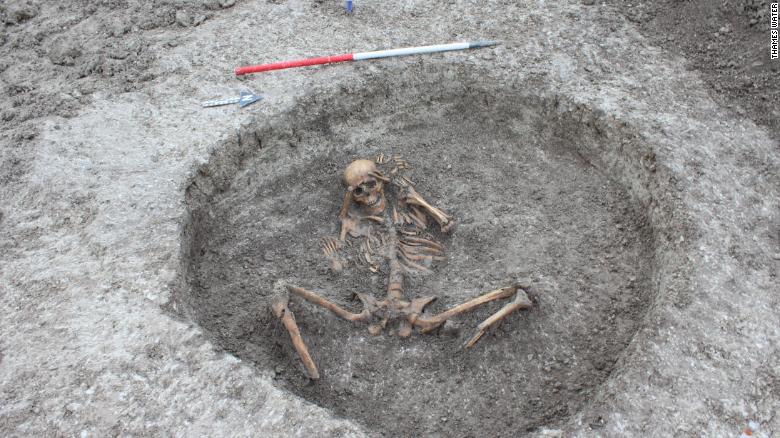By Rob Picheta, CNN
London (CNN)Dozens of Neolithic skeletons, including those of people who may have been victims of human sacrifice, have been discovered in an almost 3,000-year-old settlement in Britain.The remains of 26 people from the Iron Age and Roman periods were found, including a woman with her feet cut off and her arms bound behind her head, and another person with their skull placed by their feet.A collection of tools from different time periods was also found in the settlement, which was discovered by engineers laying water pipes in Oxfordshire, England.Archaeologists inspecting the remains believe the people found were from the same community involved in creating the Uffington White Horse, a prehistoric chalk sculpture on a nearby hill.
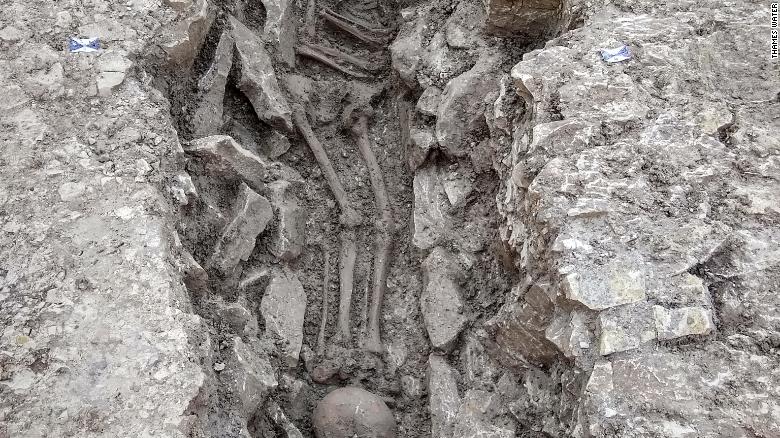
A skeleton found with its skull placed at its feet.”These findings open a unique window into the lives and deaths of communities we often know only for their monumental buildings, such as hillforts or the Uffington White Horse,” Paolo Guarino, Cotswold Archaeology project officer, said in a statement.”The results from the analysis of the artefacts, animal bones, the human skeletons and the soil samples will help us add some important information to the history of the communities that occupied these lands so many years ago,” he added.
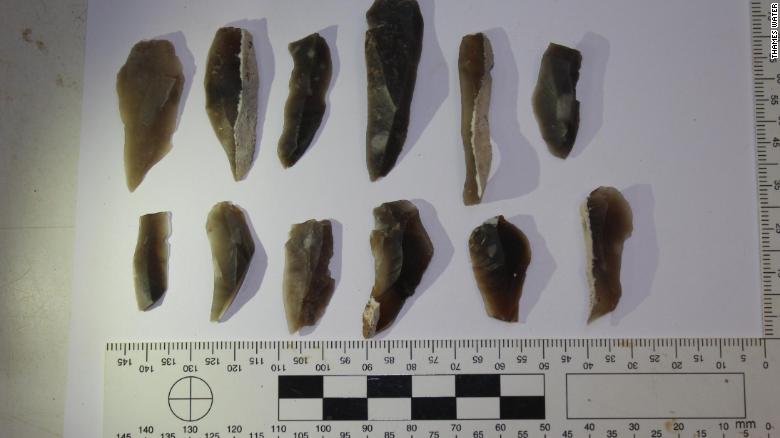
A collection of prehistoric flint tools.
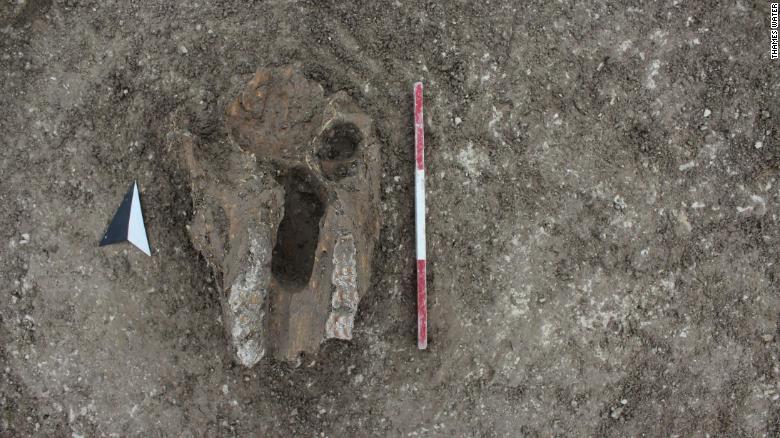
An animal skull, probably from a horse, placed in one of the Iron Age pits.The group has removed the remains from the site for a forensic investigation. They were found during work on a Thames Water project aimed at protecting an Oxfordshire chalk stream.The findings “provided a glimpse into the beliefs and superstitions of people living in Oxfordshire before the Roman conquest,” said Neil Holbrook, chief executive of Cotswold Archaeology. “Evidence elsewhere suggests that burials in pits might have involved human sacrifice.””The discovery challenges our perceptions about the past, and invites us to try to understand the beliefs of people who lived and died more than 2,000 years ago,” he added.
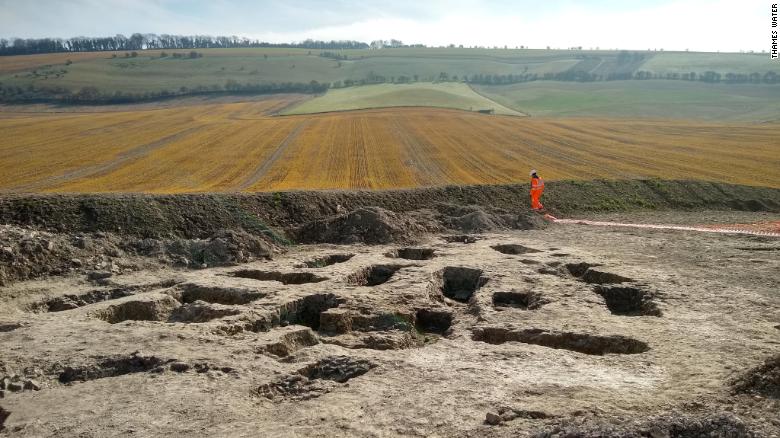
The dig site, near Letcombe Bassett in Oxfordshire, England.
Culled from CNN




